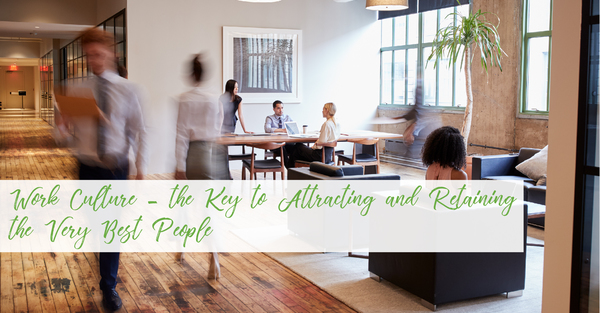Drop off your CV
We serve the global HR community through our offices located in Delhi, Hong Kong, London, New York, São Paulo and Singapore and have placed HR leaders in over 30 countries.
The data we get from our Global HR Survey always fascinates me and as we pour over the resul...

The data we get from our Global HR Survey always fascinates me and as we pour over the results, several key areas stand out. This year, all the way down in question number 24, we asked “If you were to move roles, what would your number one priority be?” Admittedly some answers were straight forward: “more money” or “better location”, but the most popular option was “Work Culture”. Interestingly, this was the leading answer in every location across the globe while in second or third place (depending on your location) was Professional Development, Work-Life Balance or Compensation.
Before analysing this result further, a basic Google search on “Work Culture”, gives you the following definition: Work culture is a concept which deals in the study of: beliefs, thought processes, attitudes of the employees and the ideologies and principles of the organisation. It is the work culture which decides the way employees interact with each other and how an organisation functions. Our survey results highlight that companies may not be doing enough to ensure employees have a clear picture and belief of their organisation’s culture. What also seems to be clear is that some companies need to change their culture, as their employees don’t believe in it, and therefore they need to understand and work on a way to manage this change. Not only will this process help in terms of attracting people to the organisation but it will also (surely!?) help in retaining people that are there, who are potentially disengaged.
Big companies have a lot of work on their hands in this regard, it takes time, money and a whole lot of effort to change the culture of an organisation that has thousands of people across many global locations. Smaller to mid-sized companies on the other hand should be viewing this as an opportunity. Being smaller can sometimes mean you can’t compete when it comes to money, but it is clear that this is now not what drives people to a company. The culture, beliefs and general ethics of the firm are absolutely vital when it comes to attracting and engaging people. I don’t have all of the answers, all we can do is talk to our clients about the trends that we see in the market and proactively discuss their organisation’s culture when we meet with them. What I can tell you from our conversations is that, a lot of the time, people genuinely don’t know what their organisation’s culture is or, if they do, their vision is far from reality. If I was to offer advice, I would encourage companies to work on defining what their culture is and then actively refer to this when attracting or selecting new people. By not being clear you are guaranteed to be losing out on the very best talent and possibly some of your very best people.
The full survey results will be out in the next few weeks, sign up to our HR Community to be amongst the first to receive the announcement and follow us on LinkedIn.